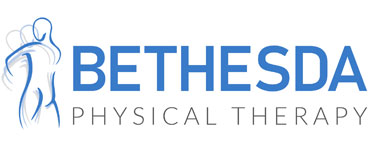We’re told to eat more veggies and fewer carbs, to wear this shoe or try that workout. Nutrition and physical activity are common topics on social media, in the news, and in emails from your gym.
We’re bombarded with so much messaging that we can lose sight of the fact that nutrition an physical activity have to work together to boost our immune systems.
Physical Activity Defined
Any activity that can elevate heart rate and increase demand on joints, bones and muscles can help to boost our immune system so that it responds more quickly when needed. By contrast, a lack of physical activity can make our immune system sluggish.
Physical activity is much more than gyms, fitness regimens such as CrossFit or sports. It also includes daily work demands; hiking, biking and walking; gardening, cleaning and other household chores. You already may perform these activities on a daily or weekly basis, with the ability to do them longer or quicker to increase demand on your joints and muscles in a positive way.
For the elderly, practicing tai chi for 30 to 40 minutes daily, five days per week at 60 percent of heart-rate maximum has been shown to increase immune-system fighting machines called natural killer cells and T cells.
What’s more, most day-to-day activities meet the requirement of the whole body moving at a constant rate for 30 to 40 minutes.
But if this is true, you might ask, then why isn’t every person a disease-fighting, cancer-beating, illness-overcoming machine?
Nutrition and Its Role
This is where nutrition comes in. We can build our immune systems to be tough through physical activity, but we also need proper nutrition to fight infections, not just for a day but for a lifetime.
This fight plays out in our gut, also known as the gastrointestinal tract, the long tube that runs from the mouth to the anus. Here is where the fungi, bacteria and viruses that live inside our gut – together known as the microbiome – help us process the food we consume daily.
Some nutritionists and researchers consider the microbiome our second brain, producing the majority of serotonin, dopamine and melatonin in our bodies.
- Melatonin helps regulate sleep cycles.
- Serotonin helps with signaling within our brain and spinal cord and generally makes us happy. A lack of serotonin can cause?causes depression, low energy and negative thoughts. And low Dopamine levels have been linked to Parkinson’s Disease.
Our intestines act as a functional barrier between what we put in our mouths and what gets absorbed into our bodies. A so-called “leaky gut” can result from factors in our lives that have negative effects on the microbiome, including:
- Taking prescription medications such as opioids
- Suffering from altered sleep patterns
- Fighting a disease
- Dealing with acute or chronic stress
- Eating refined sugars or high amounts of fat
A leaky gut leads to an overall increase in inflammatory factors, which can place an overload on our immune systems.
In other words, you can be a physically active person but still unable to fight off infections, no matter how awesome the tai chi instructor or how great of a muscle pump you got at the gym.
If we aren’t feeding our immune systems properly through consistent activity and adequate amounts of plant-based foods, then we are no better than a dog chasing its tail. And, yes, this could be the reason why you feel like you have tried every diet on the internet without much change in how you look or feel.
The good news is that by combining healthy helpings of fruits and vegetables with a fun and consistent activity regimen, you can achieve most of what your body needs to boost immune function.
Sources cited:
- David LA. MauriceCF. Carmody RN. et al. Diet rapidly and reproducibly alters the human gut microbiome. Nature. 2014 Jan 23;505(7484):559-63.
- LouisP. HoldGL. Flint HJ. The gut microbiota, bacterial metabolites and colorectal cancer. Nat Rev Microbiol. 2014 Oct;12(10):661-72.
- Magee E. A nutritional component to inflammatory bowel disease: the contribution of meat to fecal sulfide excretion. Nutrition. 1999 Mar;15(3):244-6.
- Shephard RJ, Shek PN. Potential impact of physical activity and sport on the immune system–a brief review.British Journal of Sports Medicine 1994;28:247-255
- Nieman DC. Henson DA. Gusewitch G. et al. Physical activity and immune function in elderly women. Medicine and Science in Sports and Exercise. 1993 Jul;25(7):823-831. DOI: 10.1249/00005768-199307000-00011.
- Stier H. Ebbeskotte V. Gruenwald J. Immune-modulatory effects of dietary Yeast Beta-1,3/1,6-D-glucan. Nutr J. 2014;13:38. Published 2014 Apr 28. doi:10.1186/1475-2891-13-38
- O’Mahony SM. Clarke G. Borre YE. Dinan TG. Cryan JF. Serotonin, tryptophan metabolism and the brain-gut-microbiome axis. Behav Brain Res. 15 January 2015, 27:32- https://doi.org/10.1016/j.bbr.2014.07.027
- Nieman DC, Henson DA, Gusewitch G, Warren BJ, Dotson RC, Butterworth DE, Nehlsen-Cannarella SL. Physical activity and immune function in elderly women. Med Sci Sports Exerc. 1993 Jul;25(7):823-31.
Written by Christopher A. Long, PT, DPT, OCS, Mount Holly, NC center
